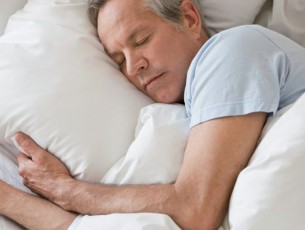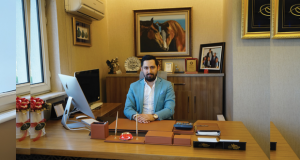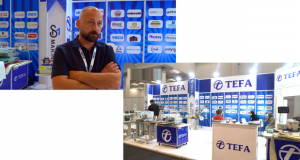Sixty percent of sleep technology owners say they’re more aware of their sleep patterns, according to the results of a new consumer research study released today at the inaugural Sleep Technology Summit & Expo in Santa Clara, CA. Conducted jointly by the National Sleep Foundation (NSF) and the Consumer Electronics Association (CEA)®, Consumer Awareness and Perceptions of Sleep Technology explored consumer satisfaction and interest related to the growing sleep technology segment.
In addition to being more aware of their sleep patterns, 51 percent of sleep technology owners say they’re sleeping better knowing the technology is helping them and 49 percent say they feel healthier since they started using the technology. Nearly sixty percent of sleep technology owners say they’re satisfied with their devices, according to study results. That’s an encouraging number for a still nascent technology, says David Cloud, CEO of NSF.
“We’re at the very beginning of this sleep technology wave,” said Cloud. “The pace of innovation in this space is astounding. The devices are getting better and better, as is the value they provide to healthy consumers looking to improve their sleep. We expect that as people learn more about sleep technology and how it can benefit their overall health, they’ll be convinced to give it a try.”
“Health and fitness technology has advanced considerably in recent years, thanks in large part to the wide deployment of sensors and ubiquity of smartphones—and the progression of sleep technology is no different,” said Chris Ely, senior manager of industry analysis, CEA. “Led by the popularity of sleep tracking abilities within most wearable fitness activity trackers, our research with NSF shows sleep technology in its various forms is having a positive impact on users’ sleep.”
Indeed, according to the study results, forty-six percent of those who use sleep technology say they benefit from the technology. However, the research also revealed a contingent of non-users who don’t think they need it, with only 27 percent reporting that they believe sleep technology will help them be healthier.
“It’s a misperception that you need to have a sleep disorder to benefit from sleep technology,” added Cloud. “Sleep is a vital sign of health and wellness, even more so than diet and fitness. In NSF’s most recent Sleep Health Index, more than 40 million Americans reported that poor sleep or lack of sleep impacted their activities at least once in the previous week. Everyone can benefit from better sleep. This represents a significant—and achievable—education and marketing opportunity for the sleep technology industry.”
The study results also illuminated another education opportunity made possible by engaging healthcare providers. While nearly 60 percent of survey respondents said a recommendation from their healthcare provider would be important in their decision to use sleep technology, only 18 percent of users reported they received such a recommendation. Given the significant health benefits of better sleep, from improved mood and memory to the ability to maintain a healthy weight, support from the healthcare community could have a critical impact on user rates.
 SleepTech Magazine Mattress, Accessories, Machinery, Raw Materials
SleepTech Magazine Mattress, Accessories, Machinery, Raw Materials



